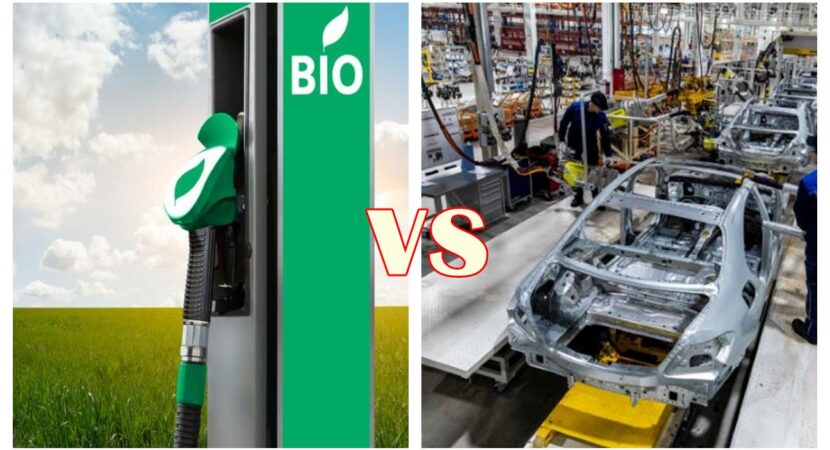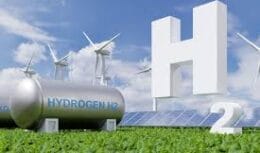
March began with a new and controversial release of a note against biodiesel producers
The great “battle” between automakers and biodiesel producers is a conflict that has been going on for some time. In this sense, the month of March began with heightened spirits after the release, last Friday (09) of a note with intense criticism of biodiesel producers. However, this is not the first time that this has happened and successive notes have been issued by both sides.
However, the note issued on the 09th had the signature of nine business entities, with an offensive and strong tone. Therefore, the biodiesel industry has pressured members of the National Energy Policy Council (CNPE) to pay attention to these media attacks. Check out the main developments of this true “duel of the titans”.
Understand a little more about how biodiesel is produced with this explanatory video from Embrapa
Large automakers want to preserve a market reserve against more modern fuels
Faced with the great environmental concern that has emerged in recent years and the search for renewable fuels, automakers still show some resistance. After all, the production of greater amounts of biodiesel and other types of biofuels can foster a new market with hybrid and electric vehicles, which has been growing all over the world.
However, automakers defend their interests in maintaining a market reserve against competition from more modern fuels. Furthermore, the increase in the circulation of vehicles with clean energy could affect the entire ecosystem for the production of new cars. In this way, what has been seen is a mutual accusation between producers and assemblers, in which whoever screams the most believes he owns the truth.
The notes presented bring the argument that only the large biodiesel producers profit from the chain
A great fallacy and distorted argument that has been used by automakers to dispel this idea of inserting biodiesel more and more in the market, is that its production only benefits large producers. However, it is proven that this is not true, since for biodiesel to reach the final consumer, many people are involved and benefited.
In this sense, biodiesel production favors cereal producers, traders, even input companies and service providers of various types. In addition, the small and medium-sized producer also stands out in the productive scenario, adding an increase in the number of jobs and stimulating regional development.
Another widely used argument is about the “sludge” that could damage vehicles internally.
Automakers and the automobile production sector have also presented arguments regarding the use of biofuel in vehicles. In this sense, what is alleged is that biodiesel promotes lees after burning, which are highly polluting. Furthermore, it can also settle in vehicle equipment and interfere with operation.
This happens because Brazilian biodiesel is made from an ester base, a compound that turns into a polluting compound after burning. Furthermore, the production of this type of diesel is economically favorable, in contrast to the green diesel (HVO) which has higher operating costs.
However, studies have already brought several advances in the sense of avoiding the formation of sludge and also of polluting material. After all, the specifications of this fuel have already been modified countless times to overthrow these arguments.
Government published the final test report in 2019 and approved the B15. However, some automakers refuse to accept
The government encouraged the carrying out of multiple tests with automakers and vehicle parts manufacturers regarding biodiesel. Thus, in 2019 the report approving the use of B15 (the new national biofuel) was released.
However, the approval of this report was turbulent. After all, two automakers refused to sign off on the report in the final moments of the shutdown. Therefore, many reasons have been speculated since then, without a concrete conclusion about what happened.
Green diesel is cleaner than biodiesel, but it may be economically unfeasible at the current moment in Brazil
However, what comes into discussion is the production of green diesel, as it does not produce polluting compounds after burning. In this sense, assemblers and producers still do not agree with the production, in view of the economic unfeasibility of both sides.
After all, a advanced and complex infrastructure is necessary for the production of this type of fuel and companies have not encouraged this modernization. Furthermore, automakers are not interested because this would bring a new fleet of vehicles to establish competition on national soil.
In other words, discussions on the production of biodiesel and green diesel in Brazil are far from over. However, what remains for us is to follow the scenes of the next chapters.













Air Force F-16 fighters…
True friend, what they shot down were…
Air Force F-16 fighters…
I would like to know what planet you live on…
Air Force F-16 fighters…
Well... It's flying scrap... Typical...
They discover the third largest deposit…
That’s why all foreigners and NGOs…
Air Force F-16 fighters…
Which genocide are you talking about? Than…
I am a mining explorer and I am…
If Kardian for R$112.490,00 can't do it...
I have a hilux that is over 30 years old but…
The service, both personally and in the workshop,…
I have the Etios, I'm anxiously waiting for the…
Sure
I already have a Yaris Hatch. Also…
Not allowing Onix to compete with…